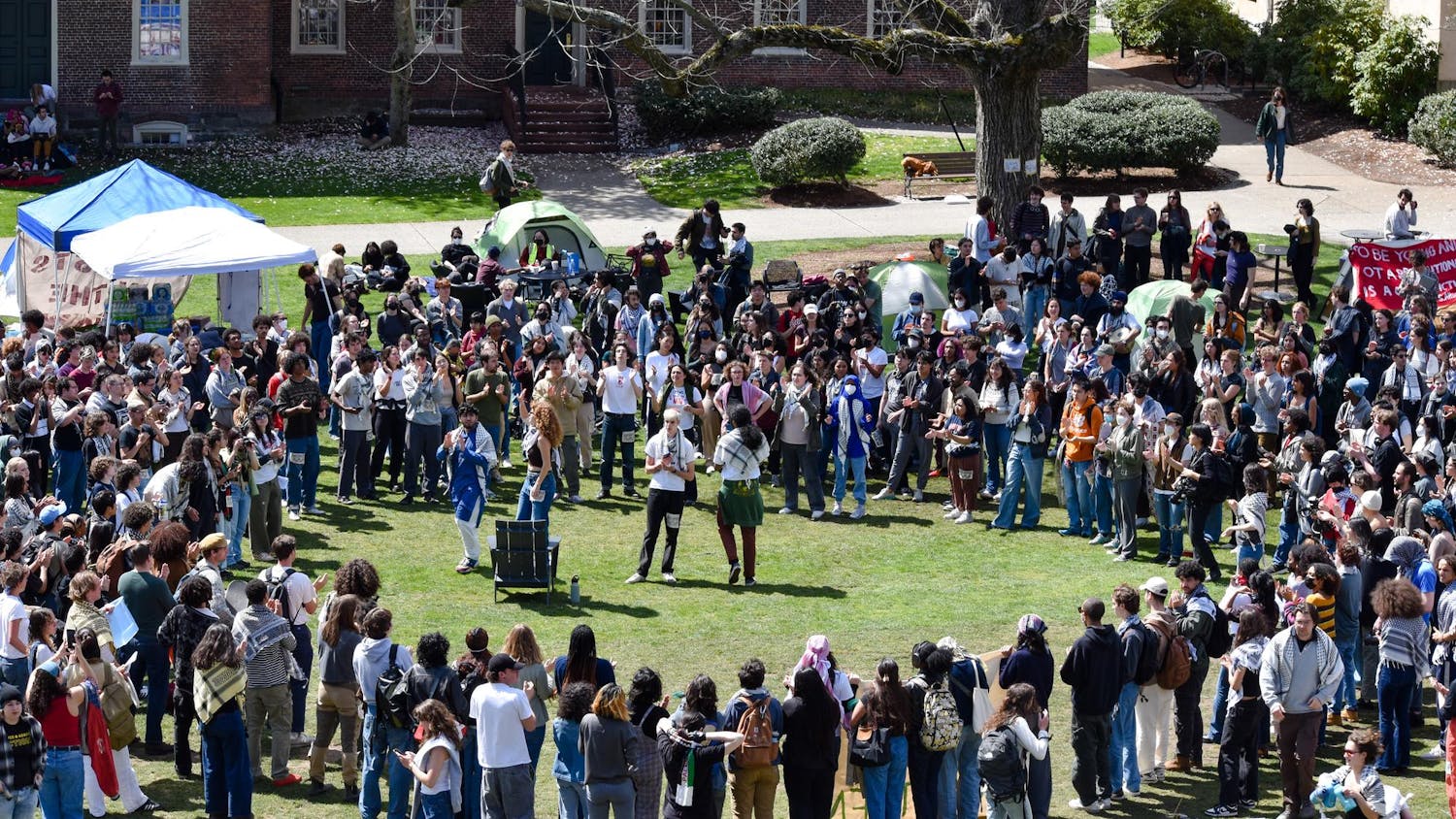In the current economy, nearly everything except the national deficit is shrinking. But to hear Deroy Murdock tell it, the nation's capital is still living large. "It's happy hour on the Potomac," declared Murdock, a nationally syndicated columnist, "while the rest of us tighten our belts, fill out job applications and pray."
In last night's debate on President Obama's recent American Jobs Act, hosted by the Alexander Hamilton Society in conjunction with the Republican Club of Brown, Murdock lobbed several such accusations at Washington. But the tenor of his discourse with Wendy Schiller, associate professor of political science and public policy, remained grounded in compromise and pragmatism.
The debate, held in Salomon 001 in front of about 40 students and community members, was the inaugural event of the Alexander Hamilton Society's new University chapter. The society is a national nonpartisan organization that seeks to foster "constructive debate on contemporary issues and basic principles," said Terrence George '13, president of both the Alexander Hamilton Society and the Republican Club of Brown. George said he chose the debate topic in light of the recent political controversy over Obama's jobs bill, which the president is trying to pass in pieces after an initial congressional rejection.
Schiller and Murdock took radically different approaches to their presentations. Schiller, seated at a table and quoting from a copy of the Federalist Papers, consistently referred to the positions Hamilton might have staked on contemporary issues. Murdock, who spoke from a lectern, used a PowerPoint filled with charts and statistics and focused on the specific economic ramifications of Obama's policies and plans.
Schiller argued that Hamilton, famously a proponent of federal intervention in the economy, would have believed in the responsibility of the government to establish economic stability "in defense of the common good." Though she conceded that Obama's first stimulus included needless waste, Schiller said the exigency of the crisis would have propelled Hamilton to action. "Hamilton would have not supported simply doing nothing," she said, which she noted is the stance of House Republicans.
Murdock chose to focus on what he deemed the failure of Obama's first stimulus to jump-start the economy, pointing to graphs that showed the federal government's increased hiring since the economic crisis and the burgeoning debt under both former President George W. Bush and Obama. He also attacked Obama's health care reform for its complexity, citing its 2,800 pages and inscrutability. "It's like ‘War and Peace' without that warm, happy feeling," he said. "Take that entire law, throw it off the books, start from scratch."
Though the debaters sparred over the best way to aid the unemployed and insure the impoverished, they agreed that the deficit is too high and that entitlement programs like Medicare and Social Security need major reform. Schiller also attempted to historicize the roots of the crisis. In response to Murdock's charges that Reagan lifted the country out of high unemployment more quickly than Obama, she said shifts in the job landscape have made the contrast irrelevant. "Our economy cannot even be compared to the economy of 1982 and Reagan," she said. "Technology has supplanted a lot of the jobs that people used to be able to get."
Murdock responded with a plan for the future: the "Tax-Free Patent Act of 2011," his theoretical idea to encourage innovation and manufacturing without straining taxpayers' wallets. "Those two words — economic growth — need to be reintroduced into the American political lexicon," he said.
After an hour of debate, the session opened to questions from the audience, and the conversation turned to the role of the Federal Reserve, health care and the relationship between inflation and monetary policy. Tina McKendall, 58, a former nurse practitioner from North Kingstown, punctuated Murdock's speeches with applause and occasional shouts of "Exactly!" and "Thank you!"
"I saw since 1975 medicine and the whole health care industry driven away from taking care of the patients," she said, citing the growth of lawsuits and paperwork and the intrusion of insurance companies. She said Murdock's use of statistics illuminated the changes over the past several decades. "Numbers make sense to me," she said. "I didn't know it was as bad as it was. That kind of made my hair stand on end."
Murdock and Schiller agreed that political leaders need to search for more compromise and greater respect. Campbell Housh '15 said the debate itself went a long way toward attaining that goal. "Getting people from opposite ideological sides of the table to agree on fundamental problems that have developed in American society has opened my eyes to the real issues," he said.




